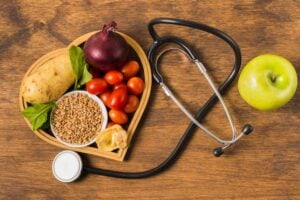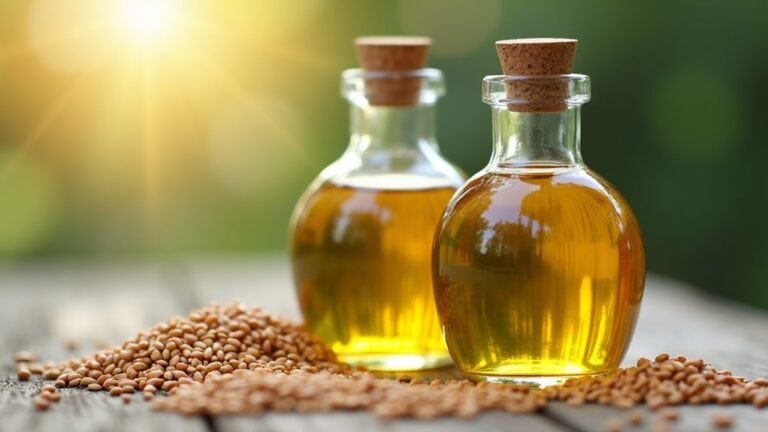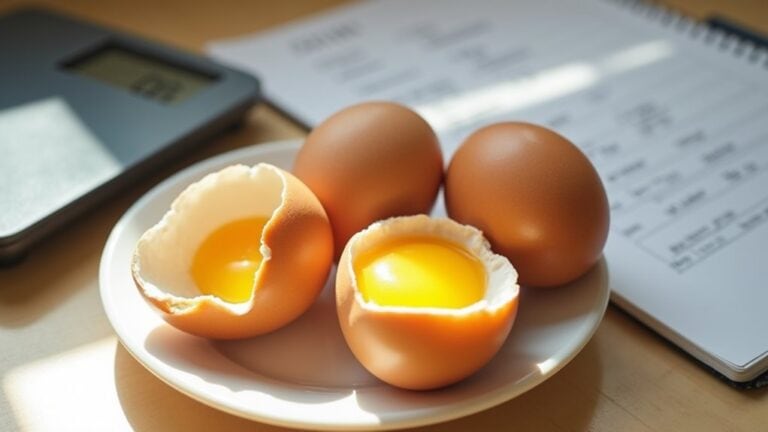High blood pressure, also known as hypertension, is a common health condition that affects millions of people worldwide. It occurs when the force of blood pushing against the walls of your arteries is consistently too high. If left untreated, it can lead to serious health problems such as heart disease and stroke.
Fortunately, there are many natural remedies that can help lower high blood pressure and improve overall cardiovascular health. These home remedies are simple, affordable and can be easily incorporated into your daily routine.
This article provides simple, natural remedies you can try at home to manage your blood pressure effectively. From immediate actions to long-term lifestyle changes, we’ve got all you need.
Key Takeaways
Understanding high blood pressure is crucial, as it significantly increases the risks of heart attacks and strokes, making diet and lifestyle choices key in management.
Immediate relief options for high blood pressure include deep breathing exercises, staying hydrated, and engaging in light physical activity.
Long-term management of high blood pressure involves maintaining a healthy weight, following heart-healthy diets (like DASH and Mediterranean), reducing sodium intake, and engaging in regular physical activity.
What is High Blood Pressure
High blood pressure, also known as hypertension, occurs when the force exerted by blood against artery walls is consistently elevated. There are two forms: primary hypertension, which has no identifiable cause, and secondary hypertension, which is caused by other health conditions. Lifestyle factors like poor diet, lack of exercise, and smoking can contribute to its development, including various cardiovascular risk factors.
The impact of hypertension is profound, significantly increasing the risks of heart attacks and strokes. A heart-healthy diet can mitigate these risks, underscoring the importance of dietary choices.
Regular monitoring of blood pressure is crucial. Adults starting at age 18 should check their blood pressure at least every two years. Understanding your blood pressure reading and maintaining a record can help you manage high blood pressure more effectively.
With this foundation, let’s explore some immediate actions to lower your blood pressure naturally.
Immediate Actions to Lower Blood Pressure Naturally
When your blood pressure spikes, you need quick solutions. One effective method is deep breathing exercises, such as the 7-second technique, which can calm your nervous system and lower blood pressure. Engaging in these exercises not only helps lower your heart rate but also reduces blood pressure.
Another simple yet effective action is drinking water, especially if dehydration is a contributing factor. Splashing cold water on your face or taking a cold shower can also help relax your nervous system, leading to a reduction in blood pressure. Additionally, light exercises like stretching can improve blood circulation and aid in reducing hypertension. Staying physically active, even if it’s just a short walk, can lead to immediate decreases in blood pressure levels.
These quick fixes are great for immediate relief, but for lasting results, long-term lifestyle changes are crucial. Let’s dive into those next.
Long-Term Lifestyle Changes
Sustained lifestyle changes can lead to significant reductions in blood pressure over time. Incorporating consistent adjustments in your daily routine plays a significant role in managing blood pressure levels. From maintaining a healthy weight to following a heart-healthy diet and reducing sodium intake, these changes can improve heart health and control blood pressure effectively.
Maintain a Healthy Weight
Reducing weight is one of the most effective methods to manage high blood pressure. Even losing as little as 10 pounds can substantially improve your blood pressure and overall heart health. Achieving and maintaining a healthy weight can lead to significant improvements in lower high blood pressure regulation.
Monitoring your sugar intake is crucial because foods high in sugar can raise blood pressure by contributing to weight gain, a risk factor for hypertension. Sugar-sweetened beverages, in particular, are linked to weight gain and can directly impact your blood pressure levels.
Focusing on a healthy lifestyle that includes whole grains, fresh fruits, and regular exercise helps manage weight and control blood pressure.
Follow a Heart-Healthy Diet
The DASH diet is a dietary approach that benefits cardiovascular health and reduces blood pressure.
Similarly, the Mediterranean diet emphasizes whole foods and has been shown to lower blood pressure by improving heart health.
Both diets focus on incorporating:
whole grains
fruits
vegetables
healthy fats
These components support blood pressure management.
Adopting these dietary approaches can contribute to effective long-term management of blood pressure. By following a heart-healthy diet, you can lower your blood pressure and reduce the risk of cardiovascular disease and coronary artery disease.
Reduce Sodium Intake
Limiting sodium to less than 2,300 mg daily can improve overall heart health and significantly lower blood pressure. Reducing sodium intake can help decrease blood pressure and enhance vascular function. Processed foods like canned soups, frozen pizzas, and deli meats are often high in sodium, which can elevate blood pressure.
By being mindful of your sodium consumption and opting for fresh, whole foods, you can enhance your blood vessels health and contribute to lower blood pressure.
Natural Drinks for Blood Pressure Management
Natural drinks can play a significant role in managing blood pressure effectively. Herbal teas, such as hibiscus and green tea, have been linked to lower blood pressure readings. Incorporating these teas into your daily routine can be beneficial for overall blood pressure management.
Low-sodium vegetable juices can provide essential nutrients while helping to manage blood pressure. By choosing these natural beverages, you can support your cardiovascular health and work towards lowering your blood pressure.
Stress Reduction Techniques
Meditation and calming music can alleviate stress, which is beneficial for managing blood pressure. Engaging in deep breathing exercises can help lower blood pressure by promoting relaxation and reducing stress.
Relaxation techniques like yoga and progressive muscle relaxation can significantly lower stress levels and enhance overall well-being. Visualization techniques can also transport you to calming environments, aiding in stress relief.
Regular Physical Activity
Engaging in regular physical activity strengthens the heart, enabling it to pump blood more efficiently and reducing the pressure on arteries. Moderate exercise for at least 150 minutes weekly can lead to a reduction in both systolic and diastolic blood pressure readings.
Activities like walking, swimming, and cycling are effective forms of aerobic exercise that can help manage high blood pressure. Incorporating resistance training into your exercise routine can enhance blood pressure control and improve vascular health.
Quit Smoking and Limit Alcohol
Cigarette smoking significantly increases blood pressure levels and the risk of hypertension. Stopping smoking can help reduce blood pressure and lower the chances of heart disease.
Even short-term alcohol consumption can cause a temporary spike in blood pressure. Moderating alcohol intake to one drink per day for women and two for men can help decrease blood pressure. Reducing alcohol intake can lower blood pressure; heavy drinkers who cut back may see their systolic pressure drop by about 5.5 mm Hg.
Home Monitoring of Blood Pressure
Regular home blood pressure measurements monitoring is recommended for individuals diagnosed with hypertension to assist healthcare professionals in evaluating treatment efficacy.
Using an automatic upper arm blood pressure cuff monitor is advised for accurate blood pressure readings, while wrist or finger monitors yield less reliable results. Monitoring blood pressures at home can provide valuable data for managing hypertension.
Taking multiple readings at each session, ideally two measurements one minute apart, ensures accuracy. Preparing for a blood pressure measurement includes avoiding smoking, caffeine, or exercise for at least 30 minutes beforehand.
Keeping a journal of blood pressure readings over time provides a comprehensive view of trends and aids in effective management.
The Role of Supplements
Coenzyme Q10 is recognized as an antioxidant that helps decrease peripheral resistance, which can lower blood pressure. The reduction in systolic blood pressure noted in the CoQ10 group was 16 mm Hg, indicating its potential effectiveness. CoQ10 also led to a reduction of 9 mm Hg in diastolic blood pressure, further demonstrating its benefits.
However, patients are advised to inform their healthcare provider about any dietary supplements they are taking to avoid potential drug interactions and adverse effects. Dietary supplements should not replace lifestyle changes in managing hypertension.
Natural Supplements and Herbs for High Blood Pressure
Natural supplements and herbs can play a crucial role in managing high blood pressure and control high blood pressure medications.
Let’s explore some effective options.
1. Garlic
Garlic is well-known for its ability to help lower blood pressure. It contains allicin, which is responsible for its potential to lower blood pressure. Garlic can lead to a reduction in systolic blood pressure by approximately 7-9 mmHg and diastolic pressure by about 4-6 mmHg in those with hypertension.
The best ways to consume garlic include eating it raw, taking supplements, or incorporating it into meals. Adding garlic to your diet can be a flavorful and effective way to manage high blood pressure.
2. Hibiscus Tea
Research shows that hibiscus tea can effectively lower blood pressure, particularly in individuals with prehypertension or mild hypertension. To prepare hibiscus tea, steep dried hibiscus flowers in hot water for about 5-10 minutes.
Consuming this tea regularly can support your blood pressure management efforts.
3. Omega-3 Fatty Acids
Omega-3 fatty acids are crucial for heart health and can contribute to lowered blood pressure by improving endothelial function and reducing inflammation. Foods high in omega-3s include fatty fish like salmon and mackerel, flaxseeds, and walnuts.
Incorporating these foods into your diet can help you maintain a heart-healthy lifestyle and manage your blood pressure effectively.
Blood Pressure with Sleep
Adequate sleep, typically 7 to 9 hours per night, is essential for controlling blood pressure and overall health. Consistently getting insufficient sleep can increase the likelihood of developing high blood pressure.
Poor sleep quality can exacerbate existing hypertension by causing hormonal fluctuations related to stress and metabolism. Individuals who sleep less than six hours per night may experience more significant increases in blood pressure.
Foods to Avoid
Managing blood pressure involves avoiding foods that can raise blood pressure levels. Saturated fats, found in animal products like fatty meats and full-fat dairy, can increase blood cholesterol levels and negatively affect heart health. Trans fats, which have largely been removed from processed foods, are associated with an increased risk of heart disease and hypertension.
Here’s a quick list of foods to avoid:
Saturated fats: Found in fatty meats and full-fat dairy.
Trans fats: Mostly removed from processed foods but still worth avoiding.
High-sodium foods: Processed foods like canned soups, frozen pizzas, and deli meats.
By focusing on a heart-healthy diet rich in fresh fruits, whole grains, and low-fat dairy products, you can manage your blood pressure more effectively.
Frequently Asked Questions
What are some quick ways to lower blood pressure naturally?
You can quickly lower your blood pressure by practicing deep breathing exercises, staying hydrated, and doing some simple stretches. These strategies are easy to incorporate into your day for better health!
How does weight management impact blood pressure?
Maintaining a healthy weight can really help lower your blood pressure, as you can expect to see a drop of around 1 mm Hg for every kilogram you shed. So, managing your weight is a smart move for your heart health!
What are some heart-healthy diets that can help manage blood pressure?
To manage blood pressure, consider the DASH and Mediterranean diets, as they both promote heart health and can effectively lower your blood pressure levels. They’re delicious and great for your overall well-being!





